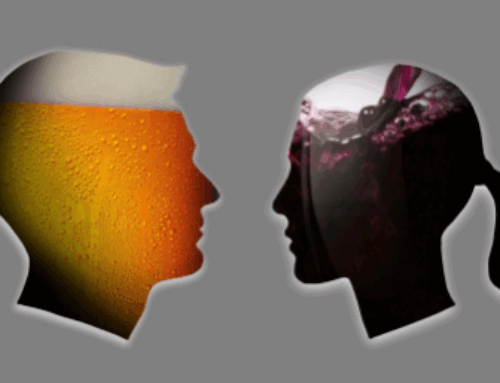Sharing a personal recovery journey can provide a powerful beacon of hope for those struggling with addiction. The road can seem long and hard, but from the shared experiences of others we can better understand the importance—and the benefits—of being willing to seek help.
In a recent essay, musician Macklemore opened up about his twenty-year struggle with substance use disorder and relapse. The 38-year-old rapper, born Ben Haggerty, is a four-time Grammy award winner best known for the number-one hits “Thrift Shop” and “Can’t Hold Us.”
Starting Young
Macklemore traces the roots of his substance misuse to consuming alcohol at the age of 14. “From the very start, I had the allergy where one wasn’t enough,” he said. “Once I started, I couldn’t stop.”
After that, Macklemore continued down the path of addiction. At age 25, he started to find small, local success as a rapper in his hometown of Seattle, WA. But when the momentum of this success came to a halt, he turned to drugs and alcohol to cope. He began recreationally using OxyContin, drinking excessively, and smoking marijuana. These unhealthy habits caused him to feel as if he had lost the will to live.
“I quickly watched my life fall apart within the first year of using drugs and alcohol,” Macklemore recalled. “But it wasn’t until years later that I hit rock bottom and ended up in a place where I could get some help.”
A Question of Happiness
Intervention came in the form of a candid conversation with his father, who offered to help by paying for treatment.
“My dad asked me the very simple but profound question: ‘Are you happy?’,” Macklemore noted. “I couldn’t be dishonest in that moment. The answer was that I was not happy at all. I was broken. I was desperate. He wanted to send me to treatment and shortly after that I surrendered.”
“That was the most powerful thing I’ve ever done,” he admits. “That first surrender—saying, ‘OK I am ready to get help and I don’t think I can do this on my own.’”
Once out of treatment, Macklemore moved back in with his parents and began to contemplate if he could be a rapper while championing for sobriety.
“I had this moment of, I should probably hide this. This isn’t cool,” he reflects. “Then, I said, ‘You know, this is who I am. I want to be transparent. I want to be honest. I want to tell my truth. This is my story.’”
The Power of Honesty
Now more than a dozen years since first entering recovery, Macklemore has continued to rack up hit records and achieve personal goals, including becoming a part owner of his hometown pro hockey team, the NHL’s Seattle Kraken. His work helping other musicians who struggle with drugs and alcohol was recognized in 2019 with an award from MusicCares, a non-profit organization established by the National Academy of Recording Arts and Sciences.
Still, his personal journey has not been without challenges. Macklemore admits to suffering three relapses in the last six years, including as recently as 2020.
“I know that addiction is a treatable disease, but I’m never going to be cured, and I’m completely fine with that,” he emphasized. “To people who are struggling right now, recovery starts with being honest with yourself, and then seeking help. It’s so important that we’re honest with ourselves and with our loved ones. We are not responsible for the disease, but we’re responsible for what we do about it.”
If you or a loved one is struggling with addiction, call the New England Recovery Center today at 1-877-MyRehab to speak with a member of our admissions team.










